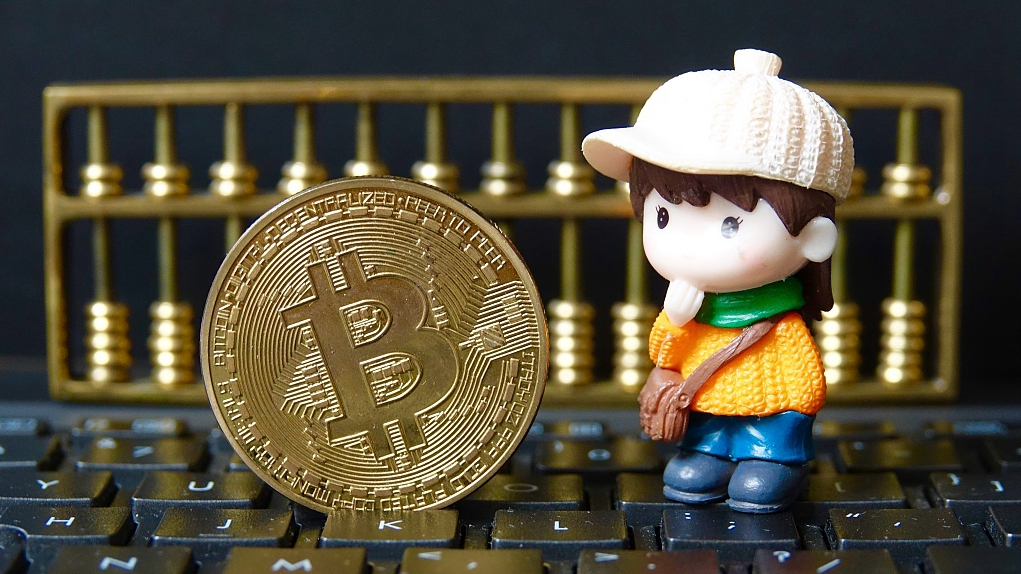PETALING JAYA: The four-year cyclic bitcoin halving event and fresh liquidity, especially institutional money, have driven the cryptocurrency market to fresh highs this year upon gaining more acceptance as an alternative asset class, albeit being a far more volatile one.
But as the drums of war got louder in the Middle East early Sunday, bitcoin was the first to reflect investor sentiment, falling some 9.9% or US$6,714 to a low of US$61,231 before fresh buying saw it trading at US$64,246 as at press time.
The fresh buying is a clear indicator that the crypto market is maturing, said Scarlett Chai, country manager of Luno Malaysia, as it now has made its way to institutional investors via centralised asset fund managers from being an asset class that was previously exclusive to the decentralised community.
The halving event, which is due to happen this week on April 19-20, could also provide price support. Historical data has shown that price corrections typically happen two years after every bitcoin halving, as this trend has been visible in the past three halvings.
However, this cycle looks very different to previous cycles with bitcoin reaching all-time highs near the halving for the first time in its history and with prospects of war as a headwind or even a tailwind.
“It is difficult to ascertain the scale of the upcoming halving’s impact on bitcoin prices. We need to understand that the crypto market, specifically bitcoin, is now different following the inflow of institutional investors. This new liquidity via exchange-traded funds (ETFs) might put the market on a new course,” Chai told StarBiz.
She added that with gold recently breaking its all-time high and should bitcoin be viewed as digital gold, they might share a similar momentum.
For some the fresh liquidity, estimated at US$13.8bil year-to-date, and the halving event could be more oxygen to a bubble, which could all end badly with systemic implications to the global financial system.
“The anticipated halving and the increased cash inflow, particularly after the ETF, has driven up cryptocurrency prices. There is little doubt that there is a bubble as there is no intrinsic or underlying value.
“This may simply be a modern version of the Tulip mania,” warned Obiyathulla Ismath Bacha, professor of finance at the International Centre for Education in Islamic Finance.
Nevertheless, with cryptocurrency gaining traction in Malaysia, Luno has recently launched its staking option on its trading platform.
Chai said the latest feature on its mobile application platform called staking was something its Malaysian clients had been asking for.
“We are the first regulated exchange to bring staking here. We launched last year and it was a long-awaited feature for the local market. Staking using ethereum is now available and we know it is suitable for the current Malaysian market,” she says.
Chai explains staking is locking up a certain amount of cryptocurrency, in this case ethereum, on the platform while allowing it to participate in a blockchain network. This also means that one’s stake grows and rewards are compounded.
“It’s just like having an asset, you can either hold on to it or lock it up so it grows. Locking it up will help the digital system, which is a computer-based network, become more secure and functional,” she said.
While the coins are being staked, users cannot sell or remove their coins but Luno will allow them to “unstake” from their wallets.
Chai added it took some time for this feature to be approved by the regulatory boards and the group is looking at launching a second coin for this feature.
“We are on track for the launch of a second coin and we believe staking should be made available for more asset classes. With all our features, we aim to make it safe and simple to participate in the cryptocurrency industry,” she said.
Luno Malaysia currently offers an instant buy-and-sell option or an exchange programme, both with distinctive features to suit a user’s risk appetite for investment.
Chai said there are 11 digital assets that have been approved by regulators and using the platform has been made easier and more seamless.
“Users can now use Touch ‘n Go, bank transfers or even FPX to choose which coin they would like to transact from as low as RM1. Then we have the exchange, which is for more sophisticated users, those that know how to read charts to study pricing and are familiar with market trends,” she said.
Chai points out that despite initial concerns on data privacy and the volatility of the cryptocurrency world, the industry has been very popular in Malaysia.
“So far, we’ve got some 840,000 users on the platform. Luno has been around since 2015 but in 2019, we relaunched ourselves in the market under the purview of the Securities Commission’s (SC) guidelines,” she said.
This means there are hard guidelines on how the platform can operate and Luno is answerable to authorities should any concerns arise.
Chai stated last year was a strong learning curve for the group as it showed the crucial role it could play in allowing users to invest in digital assets.
“It became important for us to address and create awareness on scams or “too-good-to-be-true” offerings. And because of this financial literacy is really vital,” she said.
Luno Malaysia has participated in various community events like exhibitions and campaigns where the need to create a better understanding on digital wealth management comes up.
“We look forward to participating in more national scam campaigns with financial institutions and such for educational purposes. We have even been in universities to speak to students and how they can avoid scams,” Chai said.
The most active group on the platform are aged between 30 and 49, Chai notes, because they have higher disposable income, but Luno has seen an increase in downloads and participation by those in the 20 to 29-year age range.
“This is their domain, and Luno targets audiences that are interested in investment and are retail-focused. In the next couple of years, we hope to hit one million users on our platform,” she said.
Meanwhile, Chai noted digital wealth management is just another form of investing, same like bonds or stocks.
“We are moving into an era where there is a blend of traditional finance and digital assets, as more markets worldwide regulate crypto and are catering to people who want to diversify more,” she said.
One piece of advice Chai gives is always start small, make yourself aware of what’s out there and be ready to put in what you can afford to lose.
“With every form of investment, the risk of losing is there. People adjust their portfolios to meet their personal strategy. Never go into an investment without a strategy, because then, you’d be basing it on your emotions and that is not how it should be done,” she advised.
In 2024, Luno users can look forward to more coins being added on the platform, subject to regulatory approval of course.
“We added two coins last year and we are looking at adding another five. We work closely in collaboration with the SC and will continue on that journey with them as we bring more offerings to people in Malaysia,” Chai said.
On top of that, with the aim to maintain the highest levels of security, Luno has introduced monthly proof of reserves reports.
Through this process, the exchange ensures each customer’s assets are maintained on a one-to-one ratio on the platform, illustrating that customer-stored digital assets match with the balance in their Luno wallets.
Chai said as there was no regulatory obligation to publish proof of reserve reports, the group saw an important step to build trust in the crypto space.
“Luno’s 12 million global customers – with over 840,000 of those in Malaysia – can be rest assured that their wallets do contain the crypto stated.”
Related article:





























